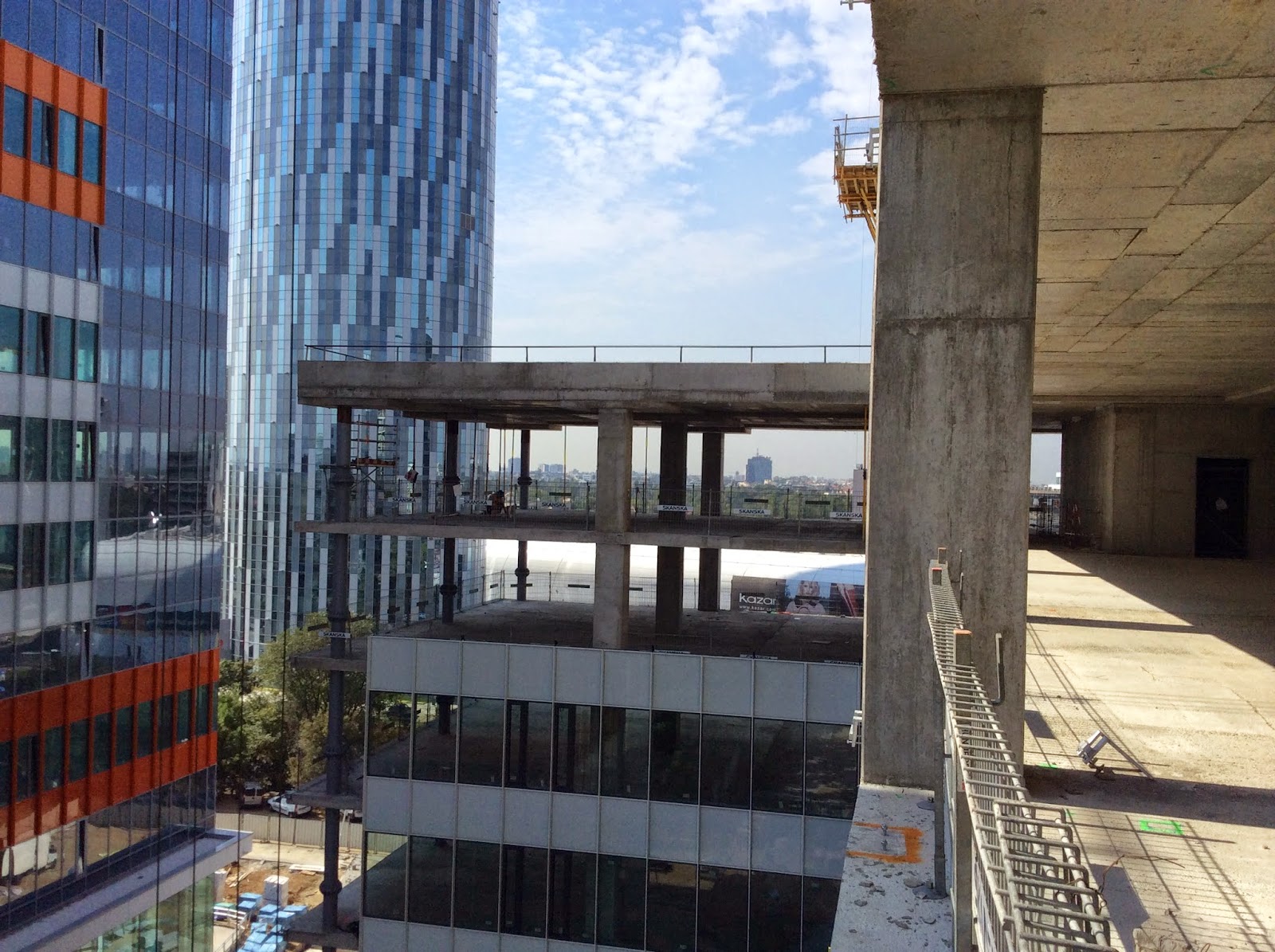Romania is supposed to build 656 km of highway and 2,226 km
of express roads by 2030, according to the Transport
Master Plan, presented by the Minister of Transport Ioan Rus, at the
beginning of October. The highway
projects included in the Master Plan are Sibiu - Braşov (103 km), Ploieşti - Comarnic (49 km), Craiova - Piteşti
(115 km), Comarnic - Braşov (54 km), Braşov - Bacău (158 km) and Gilău - Borş (177 km), the total
estimated cost for these projects, reaching
6.28 billion euro. Moreover, the Master Plan includes the construction
of express roads totaling
approximately 2,200 km, the necessary funds for these projects accounting for
around 17.5 billion euro. According to the document, 2,674 km of trans-regional roads, 293 km of
EuroTrans roads and 172 km of city belt
should be built, the total of necessary funds for the development of the road sector standing at 26.1 billion
euro.
 Alexandros Ignatiadis,
co- founder and shareholder of the company OCTAGON
CONTRACTING & ENGINEERING, commented on the Master Plan and offered
solutions which could help Romanian construction
companies participate in public bids for large infrastructure projects, during the TV show “Metropolis”, broadcast
by the “The Money Channel”.
Alexandros Ignatiadis,
co- founder and shareholder of the company OCTAGON
CONTRACTING & ENGINEERING, commented on the Master Plan and offered
solutions which could help Romanian construction
companies participate in public bids for large infrastructure projects, during the TV show “Metropolis”, broadcast
by the “The Money Channel”.
The Money Channel:
What is your perspective on the Master Plan presented by the Minister of
Transport at the beginning of October?
Alexandros
Ignatiadis: The Minister of Transport presents a Transport Master Plan on a regular basis. It is our obligations to
the European Community to send this report, but the question marks are related
to the lack of responsibility towards the objectives within the previous Master
Plans. We never find out which of these
have not been reached and who is responsible for the positive or negative
results. In the private sector, companies that do not perform, pay through low
profits or even losses, for the failed objectives. In the public sector we do
not have an evaluation and control system, which could hold those governing the
country, accountable. Each new government sends optimistic messages related to
the plans for the ongoing terms, but at the end of the term, the results are
always disastrous.
The Money Channel:
What changes should occur on the construction
market to allow Romanian contractors to have access to road infrastructure projects?
Alexandros
Ignatiadis: A major issue, which
stops Romanian construction companies
to participate in such large bids, is the weak capitalization. The financial
burden, represented by bank guarantees and performance guarantees, combined
with long delays on payments made by the state, which is the beneficiary of
these projects, are the main causes why Romanian companies cannot stand the
competition against foreign companies. A method to attract capital would be
through Bucharest Stock Exchange, but right now there is no Romanian construction company listed on the
Stock Exchange.
The second negative factor is the interference of politics
in public bids, which could be eliminated by licensing the construction companies. Through licensing, only the companies with
a certain level of capitalization and a certain level of expertise would have
access to bids. Right now, the Romanian legislation allows any company, set up
six months ago, with a share capital of 200 lei and obviously devoid of the
necessary expertise, to be eligible for the construction of large infrastructure
projects. The only condition is to partner with other companies willing to
provide technical or financial support.
The licensing of construction
companies would stop the phenomenon of “flat companies”, set up over night,
politically backed, which vanish right after the end of the term of those who
have supported them.
Licensing could also solve the issue of contested results,
which prolong almost three times the life cycle of a project.
We all know that, within all European projects, the funds
are allocated for a certain term and if the implementation of the project
exceeds the initial term, the funds can no longer be absorbed. In Romania the
execution terms of infrastructure projects
are prolonged 3 to 4 times due to the mentioned issues, and at the end of each
year we manage to always wonder about the same thing: why do we absorb such a
low percentage of the allocated European funds?
Romania had, at the end of last year, 644 km of highway, 16,466
km of national roads, 35,587 km of county roads and 32,190 km of village roads.
According to the Master Plan, there are no express roads in Romania.
You can watch the show here:












